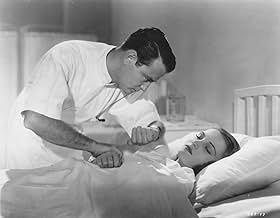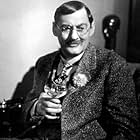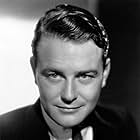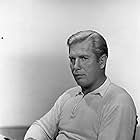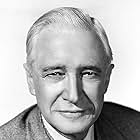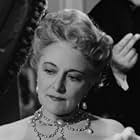Dr. James Kildare decides to take a position at a large New York hospital instead of joining his father's country practice but he finds himself in serious trouble after he saves a suicidal w... Read allDr. James Kildare decides to take a position at a large New York hospital instead of joining his father's country practice but he finds himself in serious trouble after he saves a suicidal woman.Dr. James Kildare decides to take a position at a large New York hospital instead of joining his father's country practice but he finds himself in serious trouble after he saves a suicidal woman.
Jessie Arnold
- Crazy Girl
- (scenes deleted)
Drew Demorest
- Reporter
- (scenes deleted)
- (as Drew Demarest)
Grace Hayle
- Stout Lady
- (scenes deleted)
Franklin Parker
- Reporter
- (scenes deleted)
Stanley Taylor
- Reporter
- (scenes deleted)
Murray Alper
- Blue Swan Waiter
- (uncredited)
- Director
- Writers
- All cast & crew
- Production, box office & more at IMDbPro
Storyline
Did you know
- TriviaThis was the first film in which Lionel Barrymore played gruff-voiced but soft-hearted Dr. Gillespie. One of MGM studio chief Louis B. Mayer's favorite actors, the irascible Barrymore was cast in this role after he had played Judge Hardy in the first of the studio's Andy Hardy movies, A Family Affair. Mayer was determined that, as long as he lived, Barrymore would be employed by the studio and after his health confined him to a wheelchair, the part of Gillespie was re-written to accommodate Barrymore's condition. He would go on to play Gillespie in 14 more films.
- Crazy creditsAfter the end title, Barrymore and Ayres emerge from behind a curtain as themselves to inform the audience that there will be further adventures of their characters, followed by a "coming to this theatre soon" card.
- ConnectionsFeatured in MGM: When the Lion Roars: The Lion Reigns Supreme (1992)
Featured review
Dr. James Kildare (Lew Ayres) is fresh out of medical school and expected to take over his father's small town practice. But Kildare decides instead to go to New York and work as an intern at Blair General Hospital. There he catches the interest of crotchety old Dr. Leonard Gillespie (Lionel Barrymore) and gets into trouble trying to prove a suicidal heiress isn't crazy.
The first in MGM's wonderful Dr. Kildare series. Paramount had released a Kildare movie the year prior to this with a different cast but that's unconnected to this series. This movie, like the rest that followed, is a classy medical drama with terrific actors and good writing. Lew Ayres was perfectly cast as the compassionate and idealistic Kildare. As would be the case in most of the series, Lionel Barrymore steals the show as the grumpy but wise Dr. Gillespie, who was so integral to the series' success that when Ayres got the boot during WW2, they handed the series over to Barrymore's Gillespie. Many of the regulars who would make up the fine supporting cast in the series appear here -- Joe the ambulance attendant (Nat Pendleton), Sally the hospital receptionist (Marie Blake), bar owner Mike Ryan (Frank Orth), and hospital administrator Dr. Carew (Walter Kingsford). Samuel S. Hinds and Emma Dunn play Kildare's parents. Nurse Lamont and Molly Byrd don't show up until the next film, though Byrd is mentioned by name in one scene. Solid performances by everybody.
It's a great movie that spawned many sequels and a (much) later TV series. Definitely something you will want to see if you're into medical dramas. Overlook the reviewers who nitpick the dated medical knowledge. That's such a ridiculous thing to complain about I can't even wrap my head around it. It's such a shame they didn't have time machines in 1938 so they could make movies that had 21st century knowledge and technology in them. Oh, well, if they had then we wouldn't be able to snark at those old primitives. God knows what a tragedy that would be! Sarcasm aside, I find the "flaws" with the medical stuff part of the appeal of the film. It gives us insight into the way such things were understood back then. That's always been a part of why I love older films -- they provide a window into the past.
The first in MGM's wonderful Dr. Kildare series. Paramount had released a Kildare movie the year prior to this with a different cast but that's unconnected to this series. This movie, like the rest that followed, is a classy medical drama with terrific actors and good writing. Lew Ayres was perfectly cast as the compassionate and idealistic Kildare. As would be the case in most of the series, Lionel Barrymore steals the show as the grumpy but wise Dr. Gillespie, who was so integral to the series' success that when Ayres got the boot during WW2, they handed the series over to Barrymore's Gillespie. Many of the regulars who would make up the fine supporting cast in the series appear here -- Joe the ambulance attendant (Nat Pendleton), Sally the hospital receptionist (Marie Blake), bar owner Mike Ryan (Frank Orth), and hospital administrator Dr. Carew (Walter Kingsford). Samuel S. Hinds and Emma Dunn play Kildare's parents. Nurse Lamont and Molly Byrd don't show up until the next film, though Byrd is mentioned by name in one scene. Solid performances by everybody.
It's a great movie that spawned many sequels and a (much) later TV series. Definitely something you will want to see if you're into medical dramas. Overlook the reviewers who nitpick the dated medical knowledge. That's such a ridiculous thing to complain about I can't even wrap my head around it. It's such a shame they didn't have time machines in 1938 so they could make movies that had 21st century knowledge and technology in them. Oh, well, if they had then we wouldn't be able to snark at those old primitives. God knows what a tragedy that would be! Sarcasm aside, I find the "flaws" with the medical stuff part of the appeal of the film. It gives us insight into the way such things were understood back then. That's always been a part of why I love older films -- they provide a window into the past.
- How long is Young Dr. Kildare?Powered by Alexa
Details
- Runtime1 hour 22 minutes
- Color
- Aspect ratio
- 1.37 : 1
Contribute to this page
Suggest an edit or add missing content




